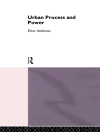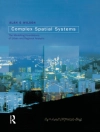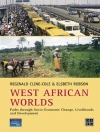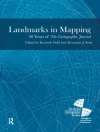Resilience is increasingly becoming a catchword in current discussions about urban and regional development. While there has been a strong research focus on sustainability, there is a lack of understanding of the processes and factors that make cities and regions more vulnerable and others more resilient, for example, when dealing with climate change, demographic decline and ageing, as well as economic crises. The German Annual of Spatial Research and Policy 2010 sheds some light on this by discussing examples of how actors deal with change. On the one hand, concepts are described and analysed which are oriented towards increasing urban regional resilience, for example regarding energy consumption, climate change, and urban decline. Moreover, institutional aspects are discussed. On the other hand, barriers for using the concept of resilience in planning are described and suggestions are made about how to deal with these barriers in strategic planning.
قائمة المحتويات
Urban Resilience and New Institutional Theory – A Happy Couple for Urban and Regional Studies?.- Given the Complexity of Large Cities, Can urban resilience be Attained at all?.- Rebuild the City! Towards Resource-efficient Urban Structures through the Use of Energy concepts, Adaptation to Climate Change, and Land Use Management.- Urban Restructuring – Making „More“ from „Less“.- Resilience and Resistance of Buildings and Built Structures to Flood Impacts – Approaches to Analysis and Evaluation.- Accommodating Creative Knowledge Workers? Empirical Evidence from Metropoles in Central and Eastern Europe.- Path Dependency and Resilience. The Example of Landscape Regions.- Vulnerability and Resilience: A Topic for Spatial Research from a Social Science Perspective.- A Strategy for Dealing with Change: Regional Development in Switzerland in a Context of Social Capital.- Planning for Risk Reduction and Organizing for Resilience in the Context of Natural Hazards












